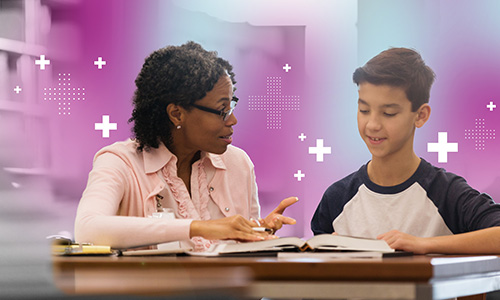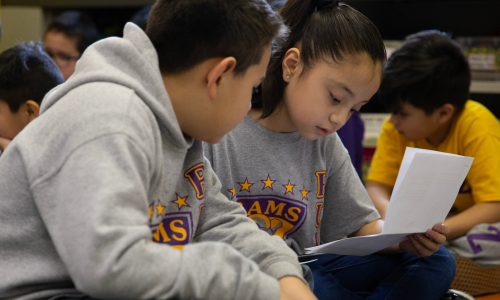 Over the past few years NWEA has been developing a program in which we link MAP/MPG results—particularly goal level RIT scores—to digital content that is commercially available. We have done this because we have been asked by our MAP-using partners, and because being able to make informed instructional choices with MAP results helps fulfill on our mission of Partnering to Help All Kids Learn. Partners have asked for more direct connections to content than those provided by our instructional resources, DesCartes and the new Learning Continuum. The links, based on RIT scores, automatically take the students to individualized learning paths (ILPs) within the digital content, saving teachers the time needed to differentiate and personalize instruction. The ILPs are created by curriculum experts at the various providers who have deep knowledge of the structure and scope of their content. Following their ILPs, students can gain maximum benefit from the digital materials–whether at home or school. Now, we are applying the concepts underlying the creation ILPs to open educational resources such as Khan Academy, a free educational resource.
Over the past few years NWEA has been developing a program in which we link MAP/MPG results—particularly goal level RIT scores—to digital content that is commercially available. We have done this because we have been asked by our MAP-using partners, and because being able to make informed instructional choices with MAP results helps fulfill on our mission of Partnering to Help All Kids Learn. Partners have asked for more direct connections to content than those provided by our instructional resources, DesCartes and the new Learning Continuum. The links, based on RIT scores, automatically take the students to individualized learning paths (ILPs) within the digital content, saving teachers the time needed to differentiate and personalize instruction. The ILPs are created by curriculum experts at the various providers who have deep knowledge of the structure and scope of their content. Following their ILPs, students can gain maximum benefit from the digital materials–whether at home or school. Now, we are applying the concepts underlying the creation ILPs to open educational resources such as Khan Academy, a free educational resource.
To help teachers supplement and enhance instruction with Khan Academy resources, NWEA has linked our MAP/MPG results to exercises developed by Khan Academy to support instruction in Common Core Mathematics. Khan Academy offers a wide range of exercises aligned to individual Common Core grade-level standards. NWEA’s links point to the exercises in a student’s zone of proximal development as suggested by goal level RIT scores. These live links are in a pdf format at http://support.nwea.org/khanrit. Because the exercises contain hints, instant feedback, and links to Khan Academy videos, they are well-suited for students to complete independently – at school or at home. Students and teachers are able to access thousands of interactive math problems that focus on conceptual understanding, procedural fluency, and real-world application. Khan Academy also keeps track of student progress on each exercise, surfacing valuable information to students and their teachers.
The NWEA resource should prove valuable for teachers and students regardless of whether they are located in a Common Core state. In our resource, the organization is based on an NWEA goal structure as described in the next paragraph. Finding the CCSS goal or even sub-goal that is similar to a goal or sub-goal in another state will be much easier than trying to match individual standards.
In our linking document, the Khan Academy exercises are organized by MAP/MPG CCSS goal structure sub-goal and RIT-range. The RIT ranges used in the document are from our 2011 norms which give approximate RIT ranges for grade-level performance. Thus, teachers can quickly access content appropriate for each student using the goal level RIT for any sub-goal that is an instructional target. Under any sub-goal and RIT range, teachers may select a particular exercise based on the standard to which it is aligned or by its descriptive name. Here is an example from the pdf that shows goal, sub-goal, several RIT ranges, sorted exercises, and standards alignment.

The links presented in the document are intended only to suggest supplementary resources based on available Khan Academy exercises and are not intended to replace other instructional options. Further, MAP/MPG results should be used as one of many data points to inform instructional decisions rather than as a placement guide. NWEA plans to work with Khan Academy to update these links twice a year as additional exercises are developed.
We hope this resource helps close the loop between the results you receive from MAP, and the content your students are ready to learn. We welcome your feedback and ideas as you start to use the Khan Academy linked resources.







